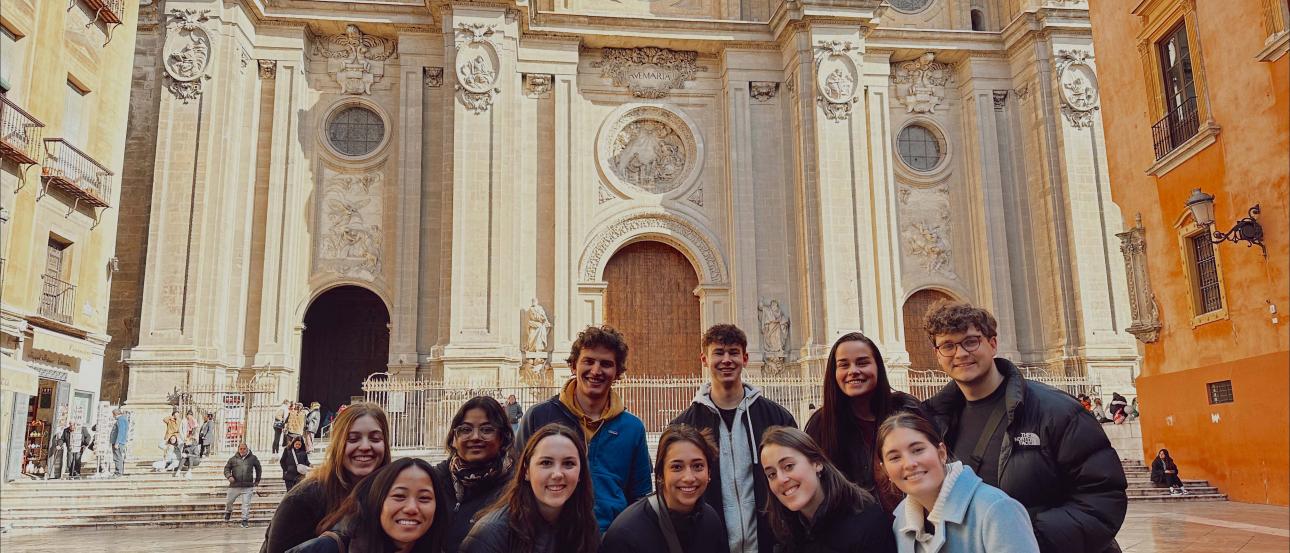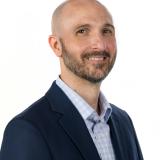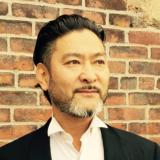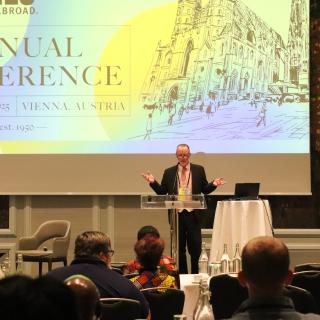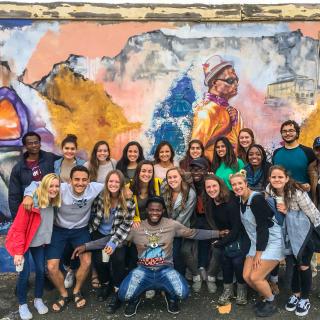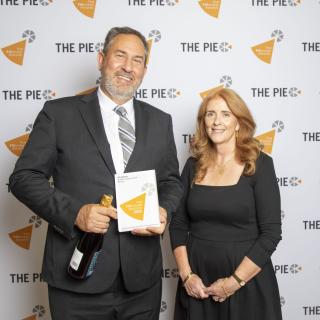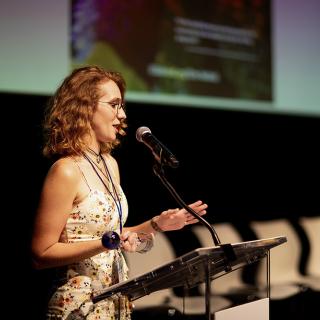"Otros Mundos Posibles: Experiential Seminar on Economy, Social, And Environmental Justice In Cataluña, Spain"
About the Faculty Leader: Luis Duno-Gottberg specializes in Latin American and Caribbean culture from the nineteenth century to the present, with a particular emphasis on race and ethnicity, politics, and violence. His current book project, Dangerous People: Hegemony, Representation and Culture in Contemporary Venezuela, explores the relationship between popular mobilization, radical politics and political representation in Venezuela, while his pevious and ongoing work on “carceral communities” explores the daily life of prison communities, from Venezuela and Brazil to the Dominican Republic, as a specific bio-political order that also affects the wider civil society across Latin America. Additionally, Duno-Gottberg works on cinema in Venezuela and on the Haitian Revolution, and he also translated the first Haitian novel, Stella, from French first into English (2014) and then into Spanish (2016). He is regularly interviewed by newspapers from El Correo del Orinico in Venezuela to the Houston Chronicle, and he has also appeared on Univisíon
At Rice, Duno-Gottberg is a faculty scholar in the Baker Institute for Public Policy and serves as magister of Baker College. Previously, he was magister of Duncan College (2009-15) and won the George R. Brown Award for Superior Teaching twice in 2015 and 2017. He holds a PhD from the University of Virginia
About the Program: "Otros Mundos Posibles: Experiential Seminar on Economy, Social, And Environmental Justice In Cataluña, Spain" is a short and intensive seminar studies and implements the principles of the solidarity economy, as they are carried out today by a number of organizations in Catalonia, Spain. We offer a unique opportunity combining theory, practice and collaboration with diverse social organizations.
The concept of solidarity economy or solidarity economy is applied to numerous experiences in which production relations and forms of distribution, consumption and accumulation of wealth are redefined. In ethical terms, it is a proposal that mobilizes resources, economic relations and alternative values, incorporating the principle of solidarity and justice as the main axis in decision-making.
Far from the idea of homo oeconomicus, according to which we are selfish and individualistic beings by nature, what the history of humanity demonstrates is that without solidarity it would not have been possible to survive as a species.
Based on these principles, our students will live for two weeks in the city of Barcelona, receiving formal instruction and, likewise, interacting with various organizations devoted sustainability, equity and solidarity.
This course aligns clearly with the IES Abroad Global Pillars (Sustainable Living, Equitable Living, Human Well-Being).
This course is conceived as a collaboration between Rice University, IES Barcelona and Xarxa d’Economia Solidària de Catalunya – XES.
The "Solidarity Economy Network of Catalonia" (Xarxa d'Economia Solidària de Catalunya - XES) is an organization made up of more than 300 members, including entities and individuals. XES promotes an economic system that respects people and the environment and operates under democratic criteria of horizontality, transparency, equity and participation.
Our main objective is to experience and learn from the principles and the innovative strategies a solidarity, responsible economy. Participants will discuss foundational texts of the movement, and will participate in rotations in various social organizations that put these principles into practice.
Every morning, from Monday to Friday, a founding text of the solidarity economy movement will be discussed. Students will then attend a formal presentation on the different aspects and practices of this model:
- Responsible banking.
- Feminist economics and with a gender perspective.
- Agroecology.
- The movement for food sovereignty.
- The social and solidarity economy.
- Education, research, and the co-construction of public policies.
Finally, participants will collaborate with the organizational and productive processes of the organizations that make life within the Xarxa d'Economia Solidària de Catalunya - XES network.
On weekends, short trips will be organized to experience the culture and history of Catalonia, from the principles outlined within the seminar.
It is worth mentioning that transportation services and meals will be provided by cooperatives that function withing the principles of Economia Solidària. In this sense, the seminar will be enacting the lessons and principles its studies.
